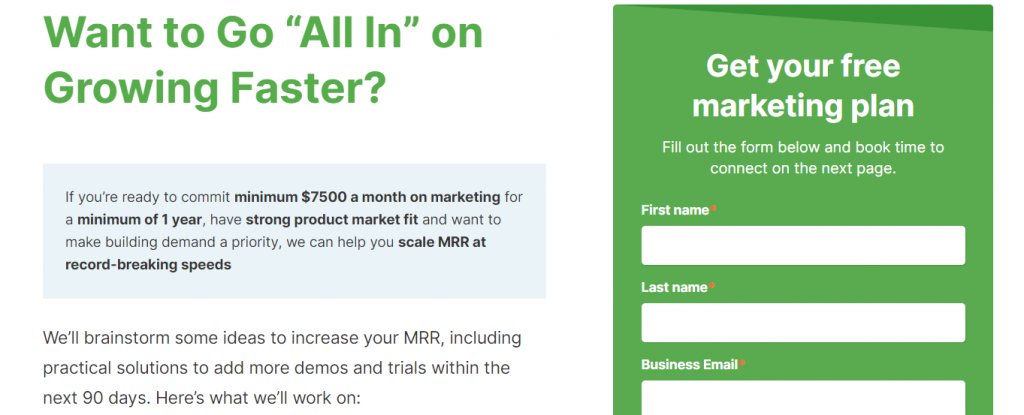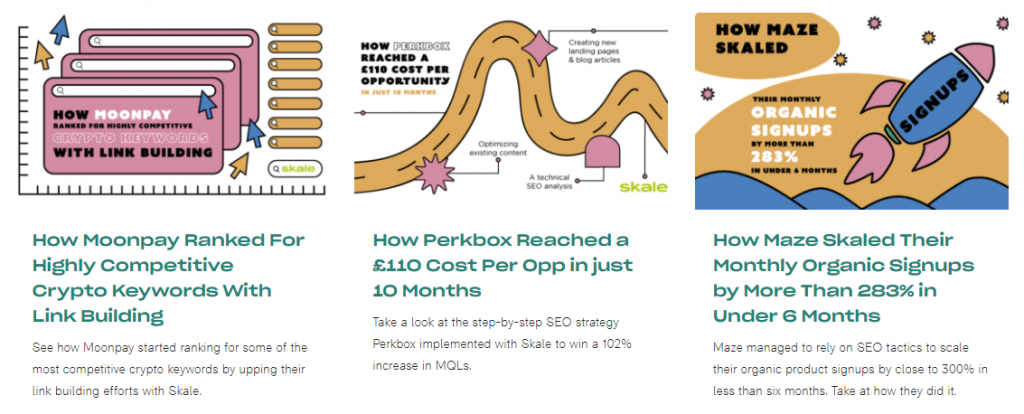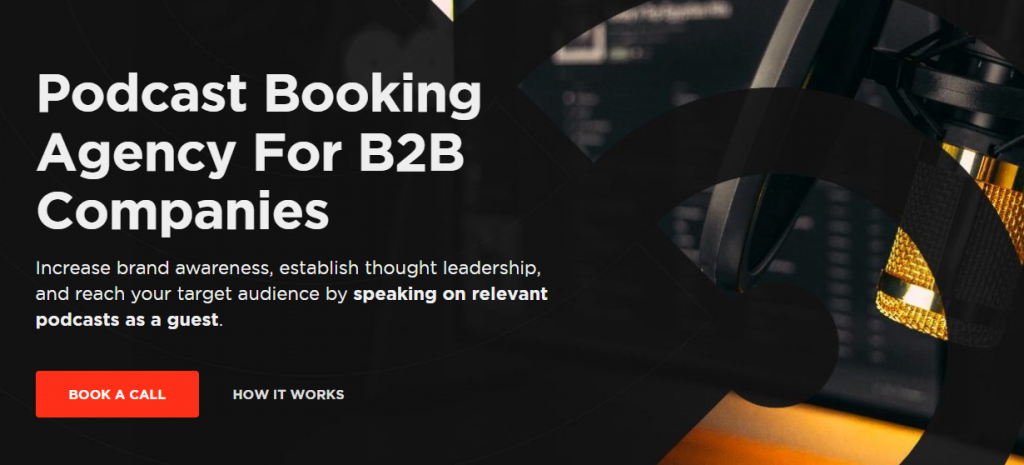Out of the ~7 years I've been doing SEO, 4 of them were in agencies. I've co-owned an agency, and worked as a strategist in a B2B SaaS SEO agency.
In that time, I've been involved in selling SEO many times. From prospecting, to working on client proposals, closing deals, client acquisition strategy, and everything in between.
Here's 11 actionable ideas (some free, some paid) to help you get more good quality SEO clients this year.
Step 0: choose a niche
I'm not going to count this one as a method, but rather a strategic decision that will make all the other methods more effective.
‘Niching down' makes life so much easier. It lets you:
- Genuinely become better at helping that niche
- Learn the lingo
- Get super relevant client case studies
- Focus your time & resources
- Have better messaging & positioning
Here's a few ways to niche down:
- Choose a business model (e.g. e-commerce, SaaS, or local businesses)
- Choose an industry (e.g. fashion, construction, tourism)
- Choose a service (e.g. content SEO, technical SEO, link building)
9 ways to get SEO clients
1. Write & rank content
Ranking content has to be the #1 method here. Doing SEO & content work for yourself lets you:
- Proves your abilities
- Keeps your skills sharp (eat your own dog food)
- Empathize with clients about their investment
- Get a compounding acquisition channel without ongoing costs
If you've picked a niche, that'll help narrow your focus here. Let's say you want to focus on fashion SEO. Instead of creating broader content that is tricky to rank like “SEO strategy”, you can pursue lower competition variants like:
- Fashion SEO
- SEO keywords for clothing
- Marketing ideas for fashion brands
- (etc.)
You can even practice SEO client reporting by setting up dashboards & reports for your own SEO performance.
If you're just getting started, you can start writing content yourself for free. As you start to scale up & build a team, you can increase your content output.
2. Post on LinkedIn
Building a personal brand on LinkedIn is a hot strategy right now. Lots of SEOs are doing it with great success; both freelancers and agencies. It's completely free, and the long-term impact is high.
So, what can/should you post? To start with, my advice would be to fill up your feed with relevant content to get inspired. Start following some people who are doing this with success. As ever, it depends on your niche, but here's a few people who are active on LinkedIn that you could start with:
- Fery Kaszoni posts about PR link building, client results, and other experiments
- Daniel Foley Carter posts about SEO audits, consultancy, and affiliate sites
- Ryan Durani posts client SEO results & strategies
- Aleyda Solís posts about SEO news, results, events, and resources

The best advice I could give you about LinkedIn posting is to simply get started. Get over your imposter syndrome, and just start posting every day. Pretty quickly, you'll start to figure out what resonates well, and it'll snowball into more post ideas.
Attribution can be pretty tricky for organic LinkedIn efforts. That said, you can expect to see signs of impact. For example, people DMing you directly on LinkedIn, instead of filling out a website contact form. Or seeing prospects engage with your posts, and so on.
I'm not posting very often (nor looking for new clients), but feel free to connect with me on LinkedIn: https://www.linkedin.com/in/priorryan/ 😄.
3. Do CRO work for your agency website
Unless you're brand new to this, chances are, you already have some existing website traffic. Conversion rate optimization work can improve the results you get from that, even without acquiring more traffic.
Here's a few quick ideas that might help you to convert more traffic.
Add social proof
What makes you credible? Why would someone believe that you're going to help them achieve their SEO targets?
Get client testimonials, share your speaking & writing work, and results you've achieved.
Optimize your CTAs (and add more of them)
What's the big reason to get in touch? Offer something tangible. A free audit, or a free strategy session are the most common ones. Here's an example from Powered By Search, who offer a free planning session.

Their CTAs across the site funnel users towards this page.
Publish client case studies
Anecdotally, I can say that the biggest thing people are interested in is your previous work. Who have you worked with? What were your objectives? What results did you achieve? What resources did you have to achieve it?
Publish these, and make them easily accessible, and impactful. Focus on the business results that you drove for your clients. Here's some examples of my personal case studies from the agency I previously worked at, Skale.

4. Guest on podcasts
Being invited as a guest on relevant podcasts is a great strategy for building your brand. Most podcast audiences will be pretty small, but they're highly engaged. And if you picked a niche, you can focus on hyper relevant podcasts that reach your target market.
Getting started can be tough, but there's a snowball effect.
In the beginning, you'll do a lot of outreach. Start small, and build your way up. Bigger shows get pitched a ton, so they'll be able to attract the highest authority guests. If that's not you (yet), start with smaller shows, and build your reputation.
In your outreach & discussions, make sure you always focus on what's in it for the podcast host (and their audience).
Managing this process yourself is free. However, if you have some budget available to kickstart this strategy, you could employ a podcast booking agency. They'll help you refine your pitch, conduct outreach, and manage the whole process. Examples of such agencies are Speak On Podcasts, and Podcast Bookers.

5. Offer referral fees
Even if you think people already like you & would refer business to you, they'll always be more motivated with a financial incentive.
Offer to pay anyone who introduces you to a new client or prospect. You could structure the rewards however you like:
- A fixed fee per prospect meeting booked
- A percentage of the monthly client invoice
- A one-off reward when a new client is closed
Once you have the reward structure in place, make sure people know about it. Create a landing page, and link it in your website footer. Mention it in your email signature. Throw it on the end of your client reports.
Also, think about who might be interested in this:
- Your employees
- Other existing clients
- Referral partners (e.g. web designers)
- Friends & family
With this up and running, it'll feel like you have a bunch of commission-only salespeople looking out for you every week.
6. Invest time in networking
Networking can be done in lots of different ways. When I had a local SEO agency, I joined local networking events.
The best results came from looking for long-term partnerships. I proactively looked to build relationships with complimentary professions:
- Website designers
- PPC freelancers & agencies
- Graphic designers
- …etc.
These people had similar clients, and we could refer each other business regularly.
Networking can also be done online. Look for Slack or Discord communities that are relevant to your niche. Or Facebook groups.
You could even consider spending time commenting on other folks' LinkedIn posts.
Whichever type of networking you pursue, remember to give value first. Answer people's questions. Help out. Offer to make introductions to your own clients & contacts. Then, you can expect to start seeing reciprocation over time after people like & trust you.
7. Run PPC ads
This one is likely to be one of the more expensive client acquisition techniques. That said, if you have a high average client value, and/or you're confident in your client retention, it could be a viable long-term strategy.
I'd advise bidding mainly on high intent keywords. Anything that contains a keyword like “service” (e.g. link building service), “agency/freelancer” (e.g. SEO agency in town-name), and so on.
These terms will come at a high cost-per-click (CPC), but conversion rates should be equally high.
If you have a PPC competitor analysis tool like Similarweb or Semrush, you can check out what other agencies are bidding on to speed up your keyword research process.

You may also find useful: PPC reporting templates
8. Conduct cold outreach
While it's not a personal favorite (or, almost anybody's favorite), cold outreach can still work for getting SEO clients.
Rather than saying ‘it's a numbers game' and firing out 1,000 emails to get 1 meeting booked, I'd advise a quality over quantity approach.
Take your time going through a prospect list. Figure out first:
- If they're a good fit (can you really help them?)
- How? Make sure you have 2-3 tangible ideas
- Who is the right person to speak to?
Then, craft a personalized email or LinkedIn message. Remember to give value, and to make sure you offer something that's very simple to understand. Try sending a Loom video that shows your face, and explains the potential impact of the work you're offering to do.
Spend 5 minutes confirming the prospect is a good fit. If they are, move on and spend up to 30-45 minutes on the initial outreach.
Remember to follow up multiple times.
9. Speak at events
Like posting on LinkedIn or guesting on podcasts, speaking at events builds your personal brand. You can tap into existing audiences, and quickly deliver value, and persuade them that you're worth listening to.
A successful speaking event has long-term and short-term benefits. There's a good chance that you'll get immediate leads from the audience. And having just attended a relevant event and heard you speak, they're usually super warm leads.
Every time you speak though, there's an incremental effect. People who've heard you before will be re-engaged. New people will follow you on LinkedIn. You'll get invited to more events. And so on.
Additionally, you can use your speaking engagements as social proof on a website. For example, Single Grain, a U.S. B2B agency have a press page which features this kind of stuff:

